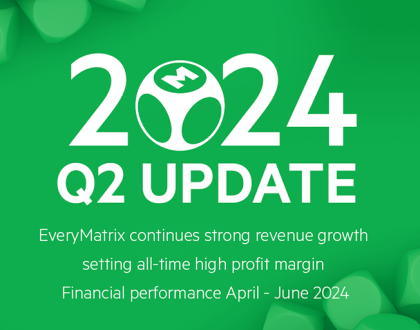Malta Chamber of Commerce’s Inflation Concerns

In the face of rising inflation, the Malta Chamber of Commerce has called on the government to reconsider its strategy, deeming the current approach potentially disastrous. They argue that the current strategy might put the country on the brink of economic implosion.
The government’s Cost of Living Adjustment (COLA) mechanism, set to increase wages to nearly €13 per week by next January, is a response to substantial inflation experienced in most countries. This mechanism is tied to the cost of living, as measured by the Retail Price Index.
In a press release issued on Tuesday, the Chamber suggested that revising lower-income tax brackets to make wage subsidies fully tax-exempt would enhance the purchasing power of lower-income groups without fueling wage inflation.
The Chamber cautioned against the proposed “series of wage hikes,” which they believe will intensify inflationary expectations and limit the government’s flexibility in responding to unforeseen economic changes.
Finance Minister Clyde Caruana’s warning of continued inflation issues, despite other countries expressing optimism about taming inflation, does not come as a surprise to the Chamber. They argue that the government’s approach disregards fundamental economic principles and poses a significant risk to the country’s economic stability.
In their statement, the Chamber expressed the view that it is illogical to compensate people for cost-of-living increases through COLA, only to divert a portion of those increases into government revenues.
“These COLA increases are substantial and not commensurate with increases in productivity,” the Chamber noted, highlighting that the mechanism is based solely on basic pay, which significantly underestimates both labor costs for employers and take-home pay for workers.
The Chamber emphasized that increasing minimum wages is not a panacea, as it carries the risk of triggering an inflation spiral and called for a cautious approach. They characterized a series of wage hikes as “naive at best and potentially disastrous at worst.”
Commenting on Malta’s blanket subsidization of energy costs, the Chamber highlighted that Malta’s inflation rate, excluding energy costs, exceeds the EU average, particularly in the services sector. This, they argue, reflects a very tight labor market, which necessitates the employment of individuals in jobs for which they lack the requisite skills and qualifications.
While the Chamber pointed out that Malta has the lowest percentage of full-time workers on minimum wage in the EU, recent reports have shown that one-sixth of Malta’s workforce earns less than €1,000 per month, and approximately 2,300 full-time workers earn the minimum wage of just €835 per month.
Malta’s economy relies heavily on low-paid jobs, primarily filled by foreign workers who are statistically more vulnerable to poverty. Despite promises to reduce the number of foreign workers, the proliferation of low-wage jobs remains unaddressed, contributing to an increasingly unaffordable property market and compounding the challenges posed by the rising cost of living, particularly inflation in essential goods and services.
FAQ:
What is the Malta Chamber of Commerce’s stance on the government’s inflation strategy?
The Malta Chamber of Commerce is urging the government to reconsider its strategy for tackling inflation, stating that the current approach may have dire consequences for the country’s economy.
What is the government’s Cost of Living Adjustment (COLA) mechanism?
The COLA mechanism is a government initiative that aims to increase wages in response to rising inflation, as measured by the Retail Price Index.
What specific change does the Chamber propose regarding lower-income tax brackets?
The Chamber suggests revising lower-income tax brackets to make wage subsidies fully tax-exempt, with the goal of enhancing the purchasing power of lower-income groups without causing wage inflation.
Why does the Chamber warn against a “series of wage hikes”?
The Chamber believes that a series of wage hikes will intensify inflationary expectations and limit the government’s ability to respond effectively to unforeseen economic changes.
How does the Chamber view Malta’s approach to compensating for cost-of-living increases through COLA?
The Chamber finds it illogical to compensate for cost-of-living increases through COLA if a portion of those increases is redirected into government revenues.
Why is increasing minimum wages seen as a potential risk by the Chamber?
The Chamber views increasing minimum wages as a potential risk because it could trigger an inflation spiral, and they advocate for a cautious approach to such changes.
What impact has Malta’s labor market had on inflation, according to the Chamber?
The Chamber points out that Malta’s inflation rate, excluding energy costs, exceeds the EU average, particularly in the services sector. They attribute this to a very tight labor market that necessitates employing individuals lacking the necessary skills and qualifications.
What statistics indicate the prevalence of low-paid jobs in Malta?
Although Malta has the lowest percentage of full-time workers on minimum wage in the EU, reports have shown that one-sixth of the country’s workforce earns less than €1,000 per month, with approximately 2,300 full-time workers earning the minimum wage of €835 per month.
How does Malta’s economy rely on low-paid jobs, and what challenges does this pose?
Malta’s economy heavily depends on low-paid jobs, primarily filled by foreign workers, who are more at risk of poverty. This reliance on low-wage jobs contributes to an increasingly unaffordable property market and compounds the challenges posed by the rising cost of living, particularly inflation in essential goods and services.
What are the potential consequences of the government’s approach, according to the Chamber?
The Chamber warns that the government’s approach, if it continues to disregard fundamental economic principles, could put the country on the path to economic implosion.
Recommended Posts

Financial Aspects of Doing Business in Malta
July 26, 2024

Malta’s Financial Regulations for Business
July 24, 2024

EveryMatrix Achieves Record Q2 2024 Growth
July 24, 2024



